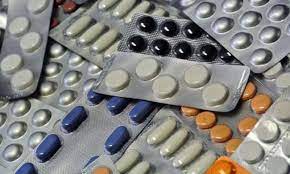Attention Deficit/Hyperactivity Disorder (ADHD), a neurodevelopmental disorder that affects children and adults, is a condition of the brain. Many people and families seek non-pharmacological methods to treat ADHD, despite the fact that medication is a common and effective treatment. This article provides insights into the benefits and considerations for a variety non-pharmacological strategies and interventions.
I. Behavioral Therapy
It is non-pharmacological and widely accepted. It has been shown to be effective at managing ADHD. The program teaches people with ADHD and their families practical strategies to address symptoms and improve daily functioning.
Behavioral interventions include establishing specific goals, rewarding good behavior, and applying consequences for unwanted behaviors.
Positive Reinforcement: Individuals with ADHD who are able to improve their concentration and self-control can benefit from rewarding and encouraging the desired behavior.
Parents are the most important individuals in managing ADHD. Parent training programs help parents learn effective strategies to support their child’s academic progress and behavior.
Communication Skills: Parents will be able to discipline their children consistently and communicate clearly with them.
II. Nutritional and dietary interventions
The management of ADHD symptoms can include nutrition. Although there is no universal diet that can be used, certain nutritional interventions or dietary changes could be beneficial. Ernahrung und Diet
Micronutrients such as iron and zinc may help manage symptoms. Before taking any supplements, it’s best to consult a doctor.
III. Exercise and Physical Activity
People with ADHD benefit from regular physical activity. Exercise improves mood and focus. It also helps with impulse control.
Exercise benefits: Regular physical activities, such as team sports, individual exercise, or sports can improve concentration and reduce hyperactivity.
Exercise promotes the release of neurotransmitters like dopamine and norepinephrine, which regulate mood and concentration.
Mind-Body exercises
Tai Chi and yoga: Mind-body practices like yoga and tai chi can help ADHD sufferers develop emotional regulation, self-awareness and self-awareness.
Meditation can help improve attention and self-regulation.
Sleep and Stress Management
To control ADHD symptoms, it is essential that those with ADHD learn to manage stress effectively and to get enough sleep.
Importance of Sleep A good night’s sleep is essential for emotional and cognitive control. Sleep deficits can exacerbate ADHD symptoms.
Establishing a Sleep Routine A sleep routine will help you to get the recommended amount of sleep for your age.
Stress Reduction
Stress Management Techniques: Strategies such as progressive muscular relaxation and biofeedback, which help people manage stress better, can be used to reduce stress.
Coping skills will help reduce ADHD symptoms.
Environmental Modifications
For people with ADHD, it is essential to create a supportive and organized environment.
A. Organisational Strategies
Routine and structure: A predictable and structured routine daily will help you to stay on track. This can also help you manage your symptoms.
Clear Systems Implementing systems of organization, such as calendars and to-do lists, can reduce the likelihood that you will forget things.
B. Reduce Distractions
Minimizing clutter. Decluttering both your home and office can create a more calm and focused environment.
Limiting Digital Distractions: By creating dedicated study or work spaces, and by reducing digital noise you can increase productivity.
Support and Education
Support and education can be beneficial to both the individual with ADHD and their family.
A. Support Groups
Shared experiences and community: Becoming a part of a support group of people with ADHD or their caregivers can create a sense of belonging.
Support groups offer emotional support as well as practical advice. The groups also offer a place to share successes and challenges.
B. Psychoeducation
Knowledge: By understanding ADHD symptoms and treatment options, families and individuals can make informed decisions about their treatment.
Understanding the condition helps individuals communicate and advocate effectively with healthcare providers.
Complementary Therapies
Traditional healing: Acupuncture, a Chinese medicine rooted in tradition, involves inserting thin needles into specific body points. Some people report improvement in ADHD symptoms.
Individual Response: The effectiveness of acupuncture and its role in ADHD treatment can differ from person to person. Further research is needed.
Chiropractic Care
Spinal Manipulation Chiropractic treatment includes spinal adjustments. Some people use chiropractic treatments as complementary therapies. However, their effectiveness is still disputed.
Research and evidence: Little scientific research has been conducted on the effects of chiropractic care for ADHD. If you are considering chiropractic care, it is important to consult with a healthcare professional.
Combining these strategies is the most effective way to maximize their effectiveness.
Customizing an Approach What works well for one person may not be right for you. Finding the most effective non-pharmacological approaches may take time.
Combination: When necessary, combining medication with non-pharmacological approaches can create a holistic approach to ADHD.
Consultation with Healthcare Professionals
Professional Advice: When designing an ADHD management plan, it is important to consult health professionals like psychologists, psychiatrists, and other specialists.





